Testing in Puerto Rico
Insecticide Resistance Testing in Puerto Rico
Beginning in February of 2016, CDC entomologists located at the Dengue Branch carried out Bottle Bioassays tests to determine the presence of insecticide resistance of Aedes aegypti to the most commonly used EPA-approved insecticides for mosquito control. CDC entomologists collected mosquitoes from many locations throughout Puerto Rico and brought them to the laboratory. Bioassay testing was performed in the laboratory with technical grade chemicals and all organisms used were discarded in the laboratory waste at the Dengue Branch.
Results from testing show that the mosquitoes collected from 38 locations in 23 of the 78 municipalities in Puerto Rico are either resistant or partially resistant to many insecticides tested. Resistance has been observed in permethrin and malathion, two commonly used insecticides in Puerto Rico.
Results are presented below as maps showing whether Aedes aegypti were susceptible, partially resistant, or resistant to specific insecticides from the municipalities shown.
- Alpha-Cypermethrin
- Bendiocarb
- Bifenthrin
- Deltamethrin
- Etofenprox
- Lambda-cyhalothrin
- Malathion
- Naled
- Permethrin
- Phenothrin
- Tetramethrin
Alpha-Cypermethrin
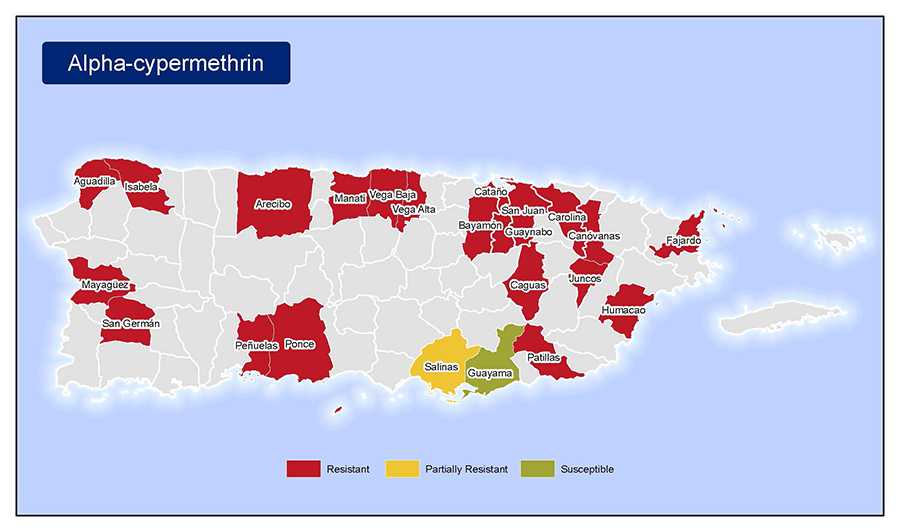
Bendiocarb
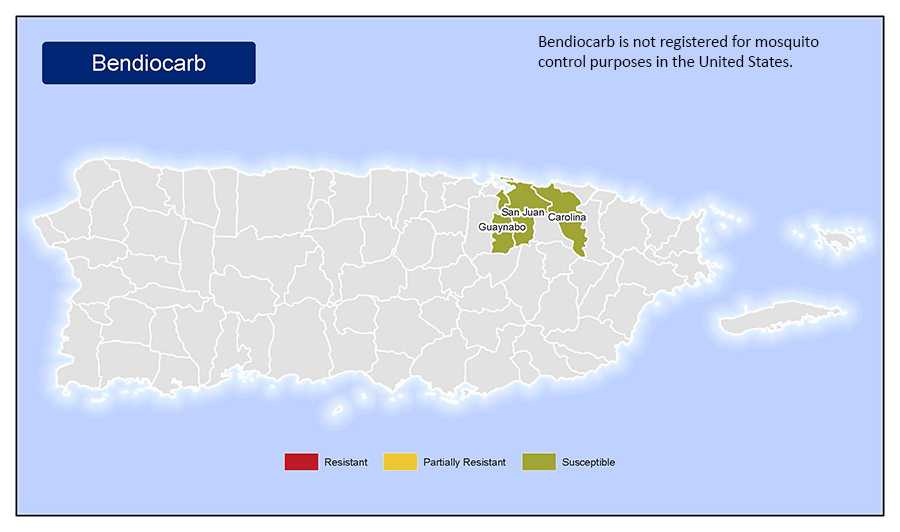
Bifenthrin
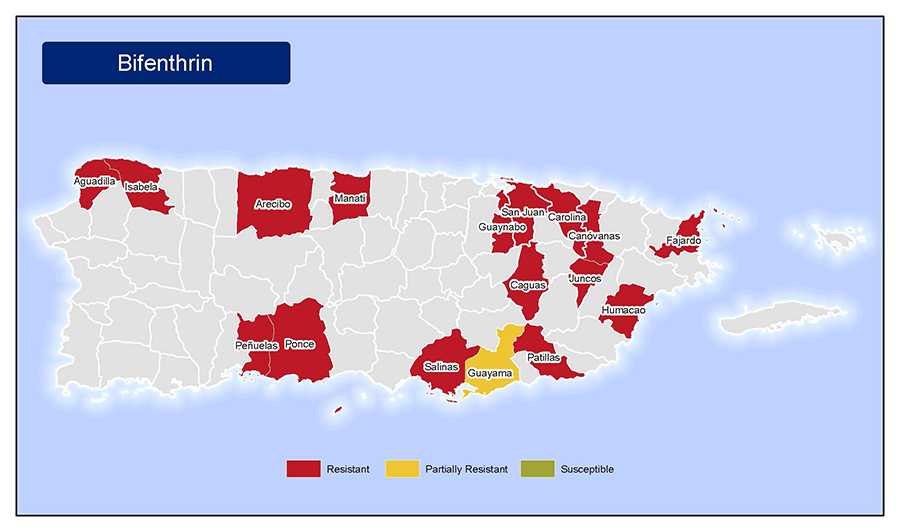
Deltamethrin
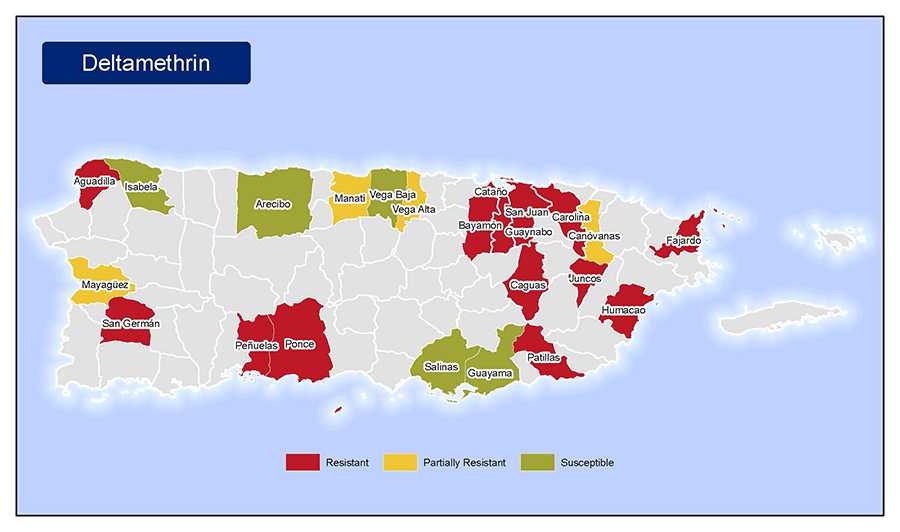
Etofenprox
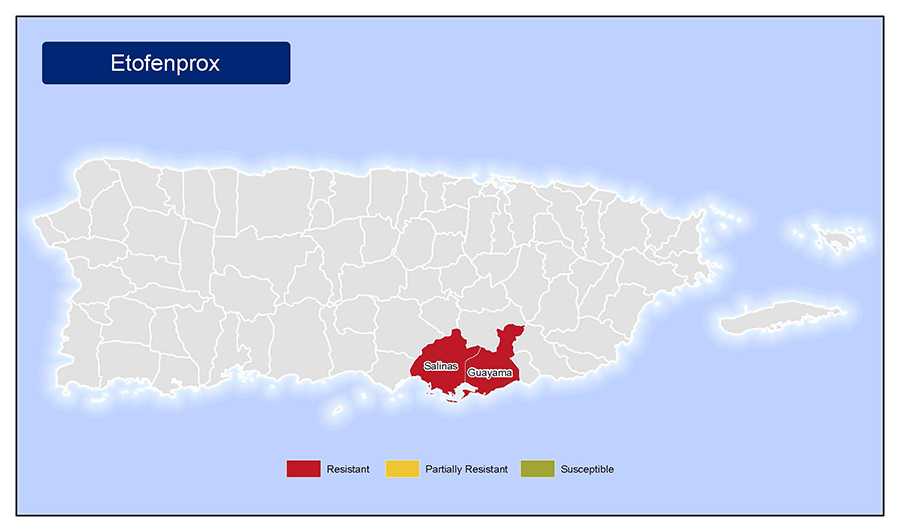
Lambda-cyhalothrin
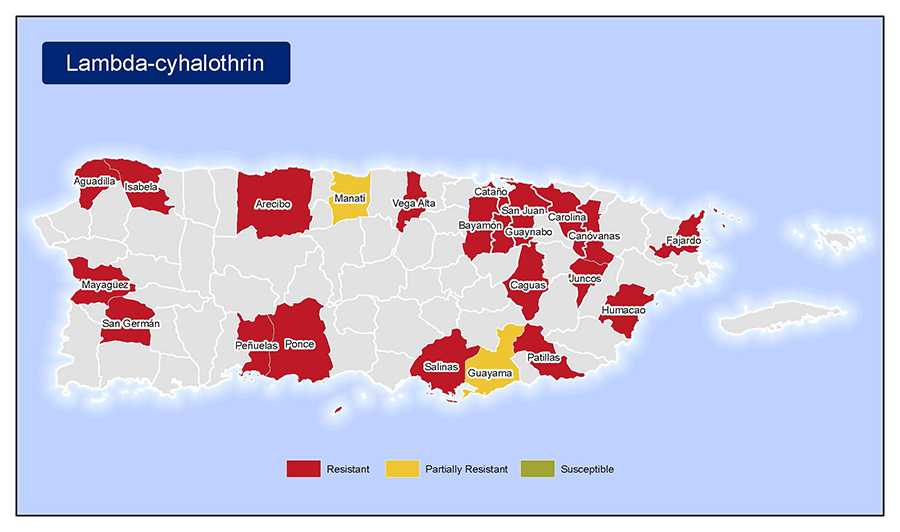
Malathion
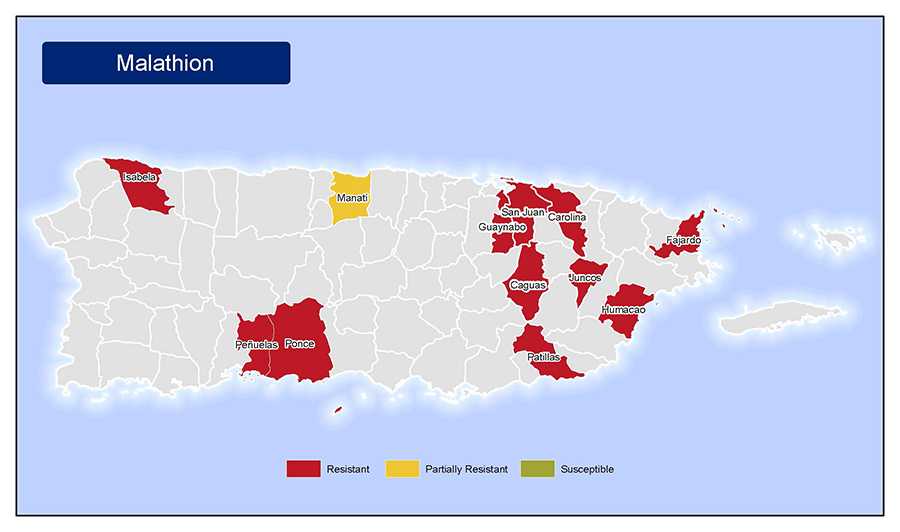
Naled
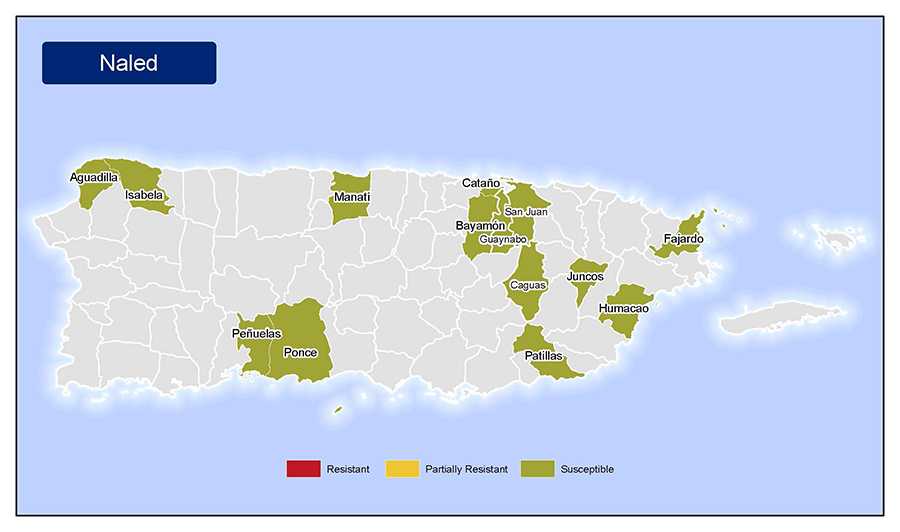
Permethrin
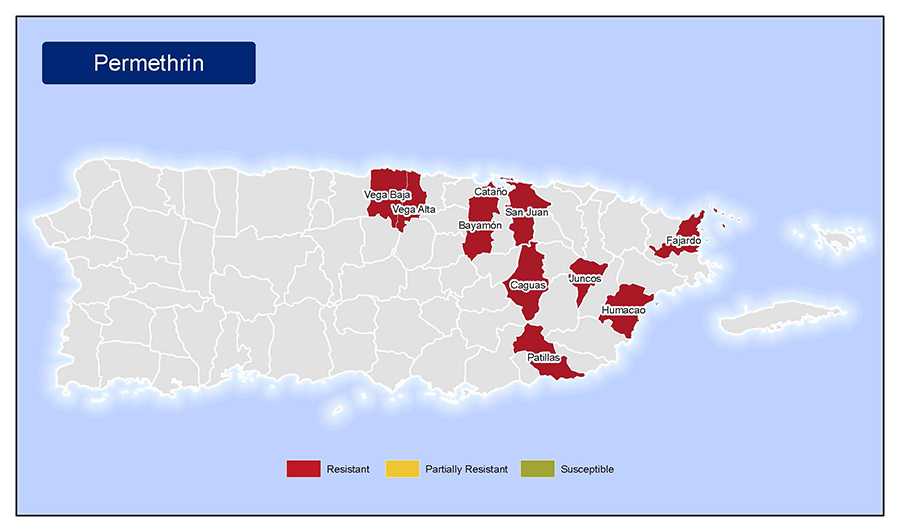
Phenothrin
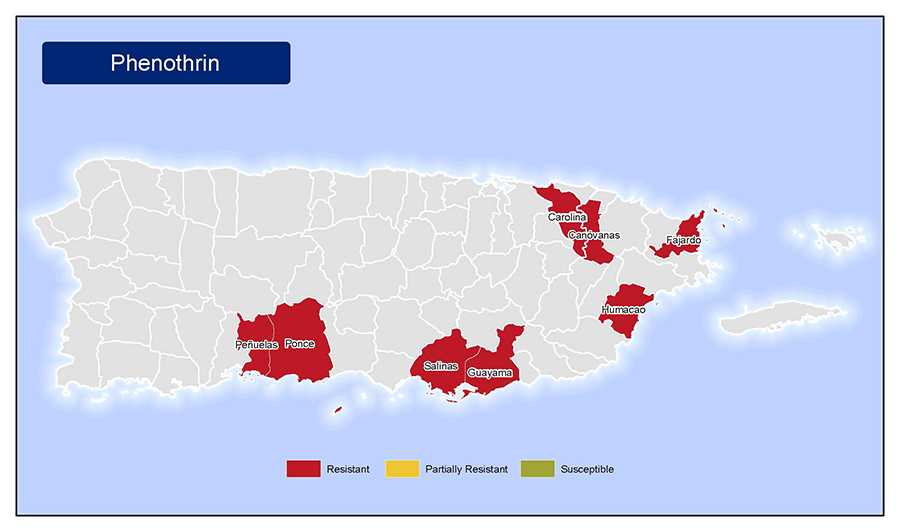
Tetramethrin
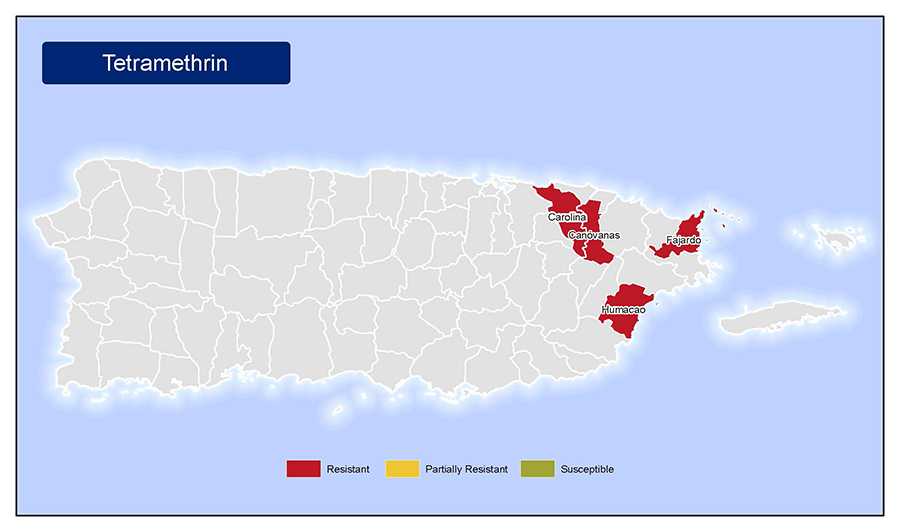
- Page last reviewed: February 2, 2017
- Page last updated: February 2, 2017
- Content source:


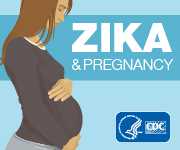
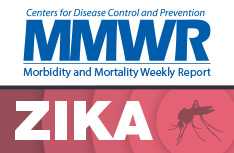

 ShareCompartir
ShareCompartir